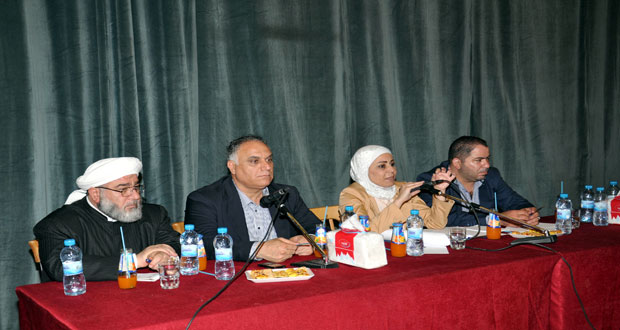Charities have become a major keystone in the Syrian society. It could pass the birth period with positive results to reach a stage of maturity in work, goal and result.
In Each province there are a lot of associations that provide assistance to a particular category, whether children, beggars or people with incurable diseases.
The State has also made great efforts to finance the work of these associations since it believes that development no longer means economic development only but it does mean also creating human-centered integrated system depending on Man’s participation and utilization from the development process.
In an attempt to identify the obstacles hindering the work process and the financial situation of these charities, ST met Mr. Walid al- Najeeb, member of the Executive bureau for the Social Affairs and People’s Labor sector, who said: ” There are about 50 charities in Homs that undertake several productive projects. The profits of these projects go to aid organizations and relief the displaced families and families of the martyrs as well as to create jobs opportunities.
Charities before the crisis was distributed between orphanages and charity hospitals such as the al-Nahdah Hospital Association and al-Bor Hospital Association in addition to a number of tailoring and knitting workshops”.
Mr. al-Najeeb went on to say : “as our country is experiencing a difficult economic and social conditions, the role of NGOs in Syria is no longer limited to charity work, but bypass it, especially in recent years, where there are many families affected by the armed terrorist gangs.
Some of them have lost their parents and great number of people were forced to leave their homes and were in need for help. So the NGOs role has expanded to include improving the living standards, fight poverty and help people with incurable diseases such as cancer, diabetes and osteoporosis”.
“We also find that some of the traditional societies have modified its mechanism that based on charity to become development associations by establishing vocational rehabilitation training centers, especially for the sons and daughters of the poor and displaced families and orphans, and combating illiteracy and follow-up the children and girls who have been deprived of their schools as a result of their displacement from their houses and schools in addition to providing basic health services to the poor and people with special needs as well as creating work opportunities for the unemployed and teaching them professions that benefit them in securing their daily needs and needed by the Syrian society as well”.
“To achieve this goal, some associations have set up numerous projects such as the several factories that were established for producing medical gauze, cheese and dairy and detergent. In addition to establishing a number of home buildings for the elderly..
Other associations and after obtaining the approval and coordination with the governorate council are carrying out the maintaining and rehabilitation works of some buildings and towers to house displaced families from the hot spots”
“There has also been coordination between a number of these associations and some international organizations such as the IOM International Organization for Migration (IOM), in order to get on a wooden baskets for the rehabilitation of housing and carrying out nurseries and industrial projects such as school bags factory. The proceeds of these projects go to the associations to be distributed to the poor, the needy, the displaced and the families of the martyrs and wounded and the severely affected families, he added.
Concerning the difficulties facing the associations’ work process, Mr. al-Najeeb said: ” One of the most important difficulties facing the work of associations, is the lack of the financial resources; where these resources are not commensurate with the growing numbers of people who are really in need”.
“As long as Man is the end of the development process, it has been working on transforming traditional charities to development voluntary associations where there is nothing that prevent the charities to have private investments so as to have a permanent revenues and resources to maintain the continuity of its work and thus ensure the implementation of their ambitious programs, Mr. al-Najeeb concluded.
Amal Farhat – Homs Correspondent

